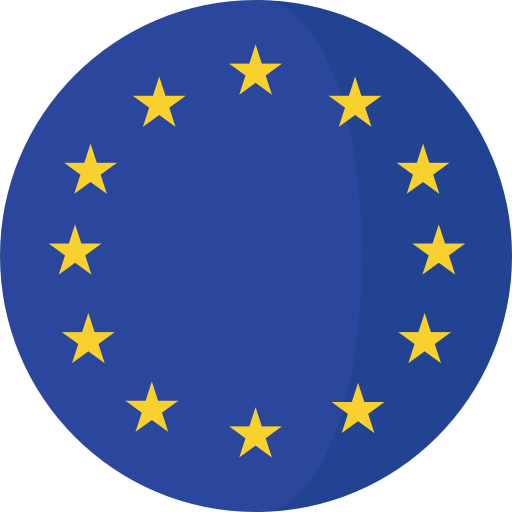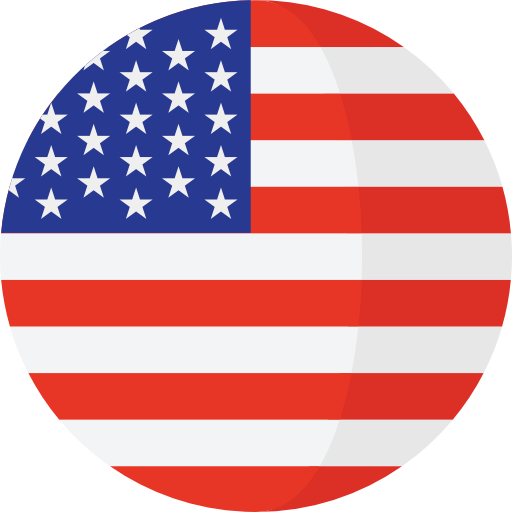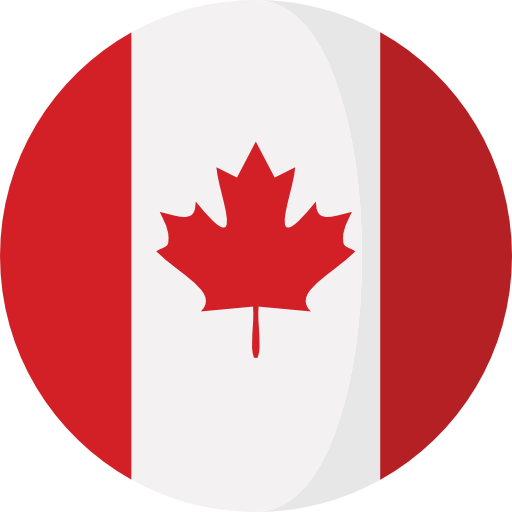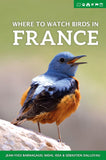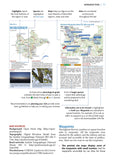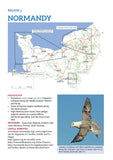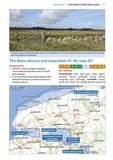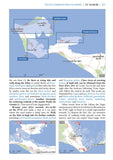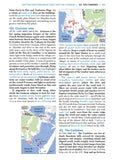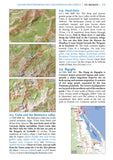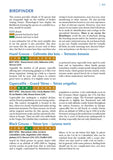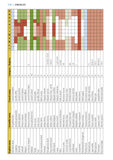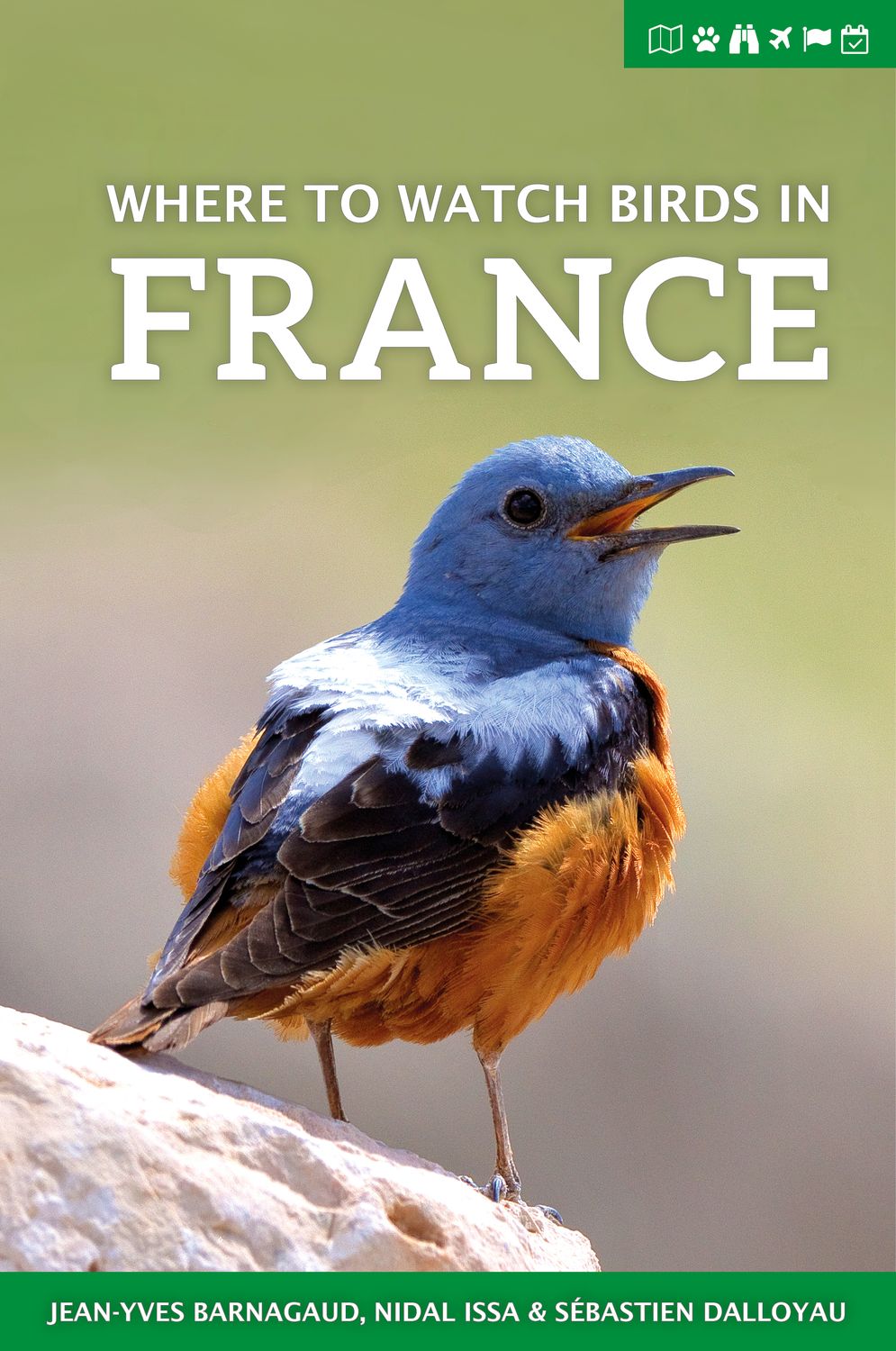
Where to Watch Birds in France
- Expert local knowledge of the 312 best birding sites
- 466 detailed site and region maps
- Accompanying GPS file with waypoints for key features at sites
- Everybody who has planned a naturalistic trip to France must place this book in the luggage!"
—Bruno Massa, Avocetta
- birding
- birds
- birdwatching
- France
- natural history
- ornithology
- site guide
Description
An introduction to France for anyone visiting with birds in mind, from casual birdwatchers checking a bird that flies over the terrace during a family holiday to addict birders who would sell their souls for a dream species or a record-breaking checklist. Some may have just a few spare hours to get their binoculars out between business meetings or museum visits, others will be out in the field for two weeks or more, from sunrise to sunset. The authors wrote this book for all bird lovers, birdwatchers and birders, whatever the duration of their stay, the number of kilometres they are prepared to travel and how they enjoy birds.
With over 400 regularly occurring species, of which 357 normally breed or winter, France has one of the most diverse avifaunas of the whole of Europe, spanning an incredible range from colourful Mediterranean flagship species such as roller, bee-eater or black-winged kite to secretive cold-climate or mountain specialists like three-toed woodpecker and Tengmalm’s owl. The Birdfinder section provides targeted details for 30 species which often rank in the top wish-list of birders visiting France.
Dividing the country into 14 regions, the authors highlight 312 representative sites, chosen for their bird species composition and ease of access. The selected sites enable the reader to see the widest possible species diversity and largest range of local specialities in a reasonable time, while respecting the basic ethical rules obvious to all birdwatchers. Whenever possible, sites are arranged in clusters or itineraries that can be covered in two to three days without hurrying. To supplement the use of the book in the field, all the sites described are geolocated in a file that can be downloaded from the publisher’s website and loaded onto any GPS device.
Readership
This book will be of interest to birders visiting France who want to get the most out of their trip.Table of Contents
Symbol chart
Foreword
Preface
Acknowledgements
Introduction
Regions at a glance
Practical information
Birdwatching in France
Region 1 – Paris and the Seine Reservoirs
Region 2 – From the North Sea to the Somme Bay and the western Ardennes
Region 3 – Normandy
Region 4 – Brittany
Region 5 – The Loire Valley
Region 6 – Poitou-Charentes and the Vendée
Region 7 – Aquitaine
Region 8 – The Pyrenees
Region 9 – Western Mediterranean Coast and the Cévennes
Region 10 – Eastern Mediterranean Coast, Southern Alps and Corsica
Region 11 – Jura and the Alps
Region 12 – Massif Central
Region 13 – Burgundy
Region 14 – Northeast
Birdfinder
Checklist
Site index
Reviews
- A must have for those birding France.
—Ian Paulsen, Birdbooker Report - Rarely it is possible to find a naturalistic guide with this abundance of information on the roads to drive or to walk and the bird species that may be observed. The novelty of this book is that all the sites are geolocated in a file that can be downloaded from the publisher’s website and loaded onto any GPS device. … Everybody who has planned a naturalistic trip to France must place this book in the luggage!"
—Bruno Massa, Avocetta - There is no doubt that a huge effort has gone into this book, which can now be considered the definitive resource for the country’s travelling or visiting birders.
—Fatbirder - An ideal tool for any trip to France, whether for the specific aim of birdwatching or for some other purpose that allows a quick escape.
—José Luis Copete, Ardeola - This new guide to birdwatching in France .... wins with its modern layout and sophisticated combination of printing and electronic information. 312 of the best observation areas are presented in 466 clearly arranged maps, on which the most important places are marked as "waypoints". These can be downloaded from the internet to a GPS device. .... The references to specific observation sites are very precise.
—Ornis - All you could want in a birdfinding guide, with lots of maps and just the right level of detail, all in a very compact package.
—Grant McCreary, The Birder's Library - I would highly recommend Where to Watch Birds in France as a well thought out book that collates and easily directs you to interesting bird spots that you might not have found outside of local guides or websites. The authors and contributors have definitely written something that they would want to use themselves and this certainly feels like a guide designed by bird watchers for bird watchers!
—Katharine Bowgen, British Trust for Ornithology - A great solution is to download a GPS file from the publisher's website, which makes it easier to navigate to destinations. The GPS file opens in Google Earth and Google Maps; Maps.me, recommended by the authors, is a great application for accessing and editing on your smartphone.
—Matti Sillanpaa, Linnut - Extremely well documented, detailed and illustrated, this new guide, created by three well-known French ornithologists, covers all the sites of France interesting to one degree or another for the birds.
—Jean Marc Thiollay, Ornithos - A monumental step in making more of this country’s bird life accessible to visitors… The amount of detailed information for each site is a marvel… A major contribution to the bird-finding literature for western Europe.
—Rick Wright, American Birding Association
About the Author
Jean-Yves Barnagaud is an associate professor in Montpellier, where he teaches ecology and statistical analysis. His recent work has focused on the analysis of data gathered by volunteers to investigate bird distribution and diversity patterns, with a specific interest in the influence of land-use practices on bird and reptile community dynamics. He has also been involved in several national and regional atlas projects and regularly collaborates with land managers in local conservation initiatives. As a birdwatcher, he has regularly visited France’s major birding sites over the last two decades, focusing on migration stopover places in Nord-Pas-de-Calais, Brittany and his current location on the Mediterranean coast between the Camargue and the Pyrenees.
Nidal Issa is a project manager in an environmental consulting office in Champagne. He has been involved in several local nature conservation initiatives and has published over a dozen articles on bird identification, travelling, bird status and birdwatching highlights in national ornithological journals. He coordinated the French bird atlas from 2009 to 2015, and contributed to the national IUCN bird Red List. He also served as a member of the French rarities committee from 2011 to 2015. He usually spends some time on Ushant island in autumn, looking for American and Siberian vagrants among other migrants. He devotes the rest of the year to local birding spots and searching for rare breeding birds, with a specific interest in raptors and black stork.
Sébastien Dalloyau spent his childhood close to the Aiguillon bay, where he developed an early interest in coastal and marine ecosystems. His focus on waterbirds led to a PhD on brent geese at the Chizé research centre. In subsequent years, he worked for the French oceanographic research institute (Ifremer) on benthic seagrass and intertidal habitats. His involvement in ecology allowed him to participate in scientific expeditions to the Taimyr peninsula, sub-Antarctic islands and Kazakhstan. He is currently the national coordinator of the brent goose monitoring network within the Goose Specialist Group (Wetlands International). In parallel, he works as a spatial analyst and expert ecologist for a bird conservation trust. He was recently involved in the French bird atlas and he manages projects on farmland birds, waterbirds and bird programmes in the French overseas territories.
Bibliographic Information
 336 pages
336 pages - Figures, maps
- BISAC NAT004000, SCI070040, NAT043000, TRV009050
- BIC WNCB, PSVW6, 1DDF, WTH


